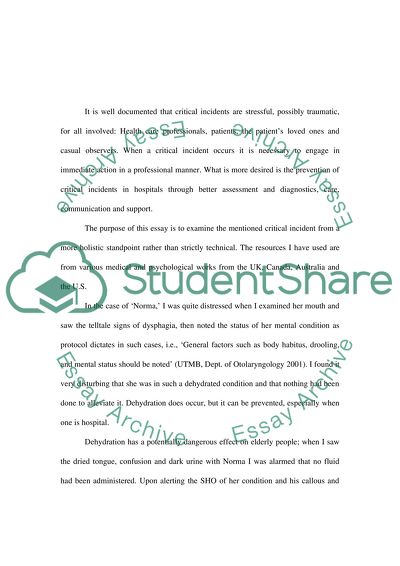Cite this document
(“Critical Incident Analysis Essay Example | Topics and Well Written Essays - 3000 words”, n.d.)
Retrieved from https://studentshare.org/health-sciences-medicine/1511695-critical-incident-analysis
Retrieved from https://studentshare.org/health-sciences-medicine/1511695-critical-incident-analysis
(Critical Incident Analysis Essay Example | Topics and Well Written Essays - 3000 Words)
https://studentshare.org/health-sciences-medicine/1511695-critical-incident-analysis.
https://studentshare.org/health-sciences-medicine/1511695-critical-incident-analysis.
“Critical Incident Analysis Essay Example | Topics and Well Written Essays - 3000 Words”, n.d. https://studentshare.org/health-sciences-medicine/1511695-critical-incident-analysis.


